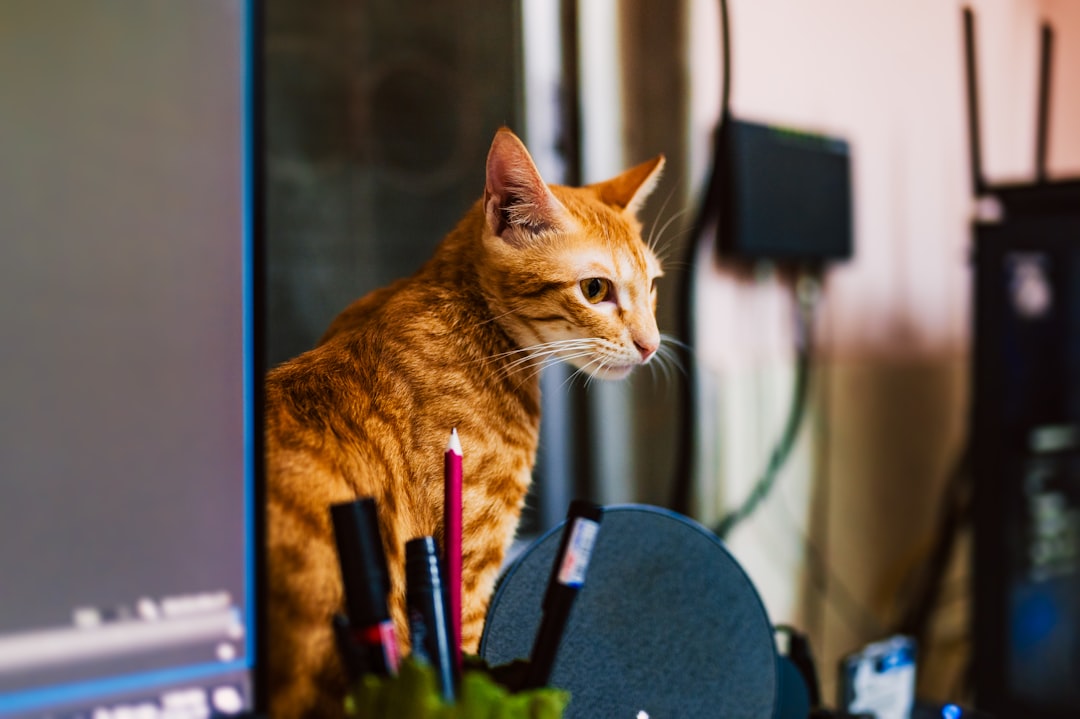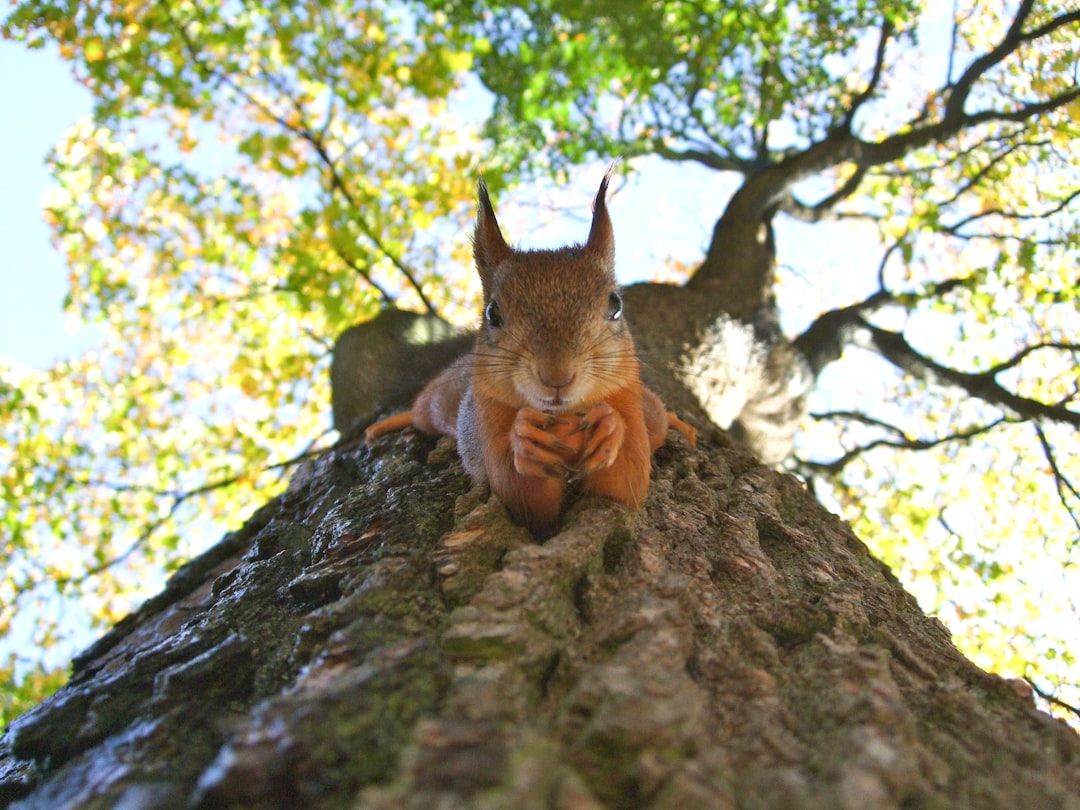Lions are fascinating and powerful predators, often associated with exotic wildlife in Africa. Meanwhile, house cats are beloved domesticated animals that have been kept as pets for thousands of years. So what happens when these two species cross paths? In this article, we will explore the complex relationship between lions and house cats, including their predatory behavior, territorial tensions, and the potential dangers of coexisting. Read on to learn more.

The Diet and Predatory Behavior of Lions
Lions are one of the most formidable and majestic creatures in the animal kingdom. As carnivores, they are designed to hunt and kill prey to sustain themselves. Their main prey includes a wide range of animals such as buffalo, wildebeest, zebras, giraffes, and many more. However, when it comes to house cats, the question arises- can lions eat house cats?
The short answer to this question is that there isn’t any evidence to suggest that lions eat house cats as part of their regular diet. Lions are apex predators in their respective ecosystems and primarily feed on larger prey animals. While they are known to sometimes attack and kill domesticated animals such as cattle, goats, sheep, and even dogs in some instances, they rarely prey on house cats.
But why would lions steer clear of hunting house cats? The answer lies in the predatory behavior of lions. These big cats have a well-developed set of hunting skills and instincts that have been evolved over millions of years to take down large, fast-moving prey. Their preferred method of hunting is to ambush their prey by using their strength and agility to bring it down before it can escape.
House cats, on the other hand, are small and agile animals that can easily avoid lion attacks. Moreover, they don’t fit the typical prey profile that lions are adapted to hunt. Lions need to conserve their energy and only hunt when they can secure a meal that is worth the effort. Since house cats are relatively small and not a significant source of sustenance for lions, there is little incentive for them to go after these animals.
However, this doesn’t mean that instances of lions hunting domesticated cats don’t occur. There have been occasional reports of lions attacking house cats in areas where their habitats overlap with human settlements. These attacks are often opportunistic, and lions may attack house cats if they are hungry, injured, or otherwise unable to find their usual prey.
In conclusion, while lions typically don’t eat house cats as part of their diet, there is always a risk of predatory behavior occurring in situations where domesticated cats and lions share the same habitat. Therefore, it is essential to exercise caution while keeping house cats near lion territories and take measures to ensure their safety.
Can Lions Eat House Cats?
Lions and house cats are both felines, but they differ greatly in their size, habitat, behavior, and diet. African lions are carnivorous, apex predators that live in the wild, while house cats are domesticated pets that typically stay indoors and eat commercial cat food. However, some cat owners may wonder whether their beloved pets can become prey to lions in the wild or in captivity.
The Diet and Predatory Behavior of Lions
To understand whether lions can eat house cats, we need to first look at what lions eat and how they hunt. In the wild, lions mainly eat herbivorous mammals such as zebras, gazelles, buffalos, and antelopes. They are adapted to chasing, overpowering, and killing large prey as a group, using their strength, speed, sharp claws, and teeth. Lions are not scavengers, meaning they seldom eat carrion or prey that they did not kill themselves. They also do not typically eat domestic animals such as cows, sheep, or goats, unless they are left unattended and pose an easy target.
Can Lions Eat House Cats?
In theory, lions can kill and eat house cats, especially if the cats venture into lion territories or parks where they are not protected by fences or buildings. However, such attacks are rare and usually occur when lions are stressed, hungry, or confronted by cats that act like prey. According to the African Wildlife Foundation, lions are less likely to attack adult cats than they are to attack dogs, which they see as competition or intruders. Additionally, most house cats are too small and agile to be caught by lions, and they are unlikely to smell or sound like natural prey, which lions have evolved to detect.
Instances of Lions Hunting Domesticated Cats
Despite their low probability, there have been reports of lions killing domesticated cats in the wild or in captivity, usually under exceptional circumstances. For example, in 2014, a lioness owned by a private breeder in Utah killed a 4-year-old house cat that had apparently jumped the fence into the lion’s enclosure. In 2018, a lioness in the Maasai Mara National Reserve in Kenya was filmed carrying a small domestic cat in her jaws, although it is unclear whether the cat was already dead or alive when the lioness caught it. In both cases, the incidents sparked controversy and concern over the safety of domesticated animals near large predators.
The Territorial Behavior of Lions
One reason why lions may attack domesticated cats is their territorial behavior. Lions are highly territorial animals that defend their hunting grounds, mate, and cubs from other lions and potential threats. They use scent, vocalizations, and aggression to mark their boundaries and warn intruders. If a cat enters a lion’s territory, the lion may perceive it as a trespasser and react defensively or aggressively. Additionally, lions may view domesticated cats as unfamiliar or non-native animals that do not belong in their ecosystem.
Risk of Keeping House Cats Near Lion Territories
Pet owners who live near lion territories or parks should be aware of the risks of letting their cats roam outside or unsupervised. Lions are wild animals that can be unpredictable and dangerous, especially when they feel threatened, hungry, or provoked. While it is possible to train cats to avoid certain areas or stay indoors, it is not foolproof, and cats may still be curious or adventurous.
Efforts to Coexist with Lions While Protecting Domesticated Cats
To balance the conservation of lions and the safety of domesticated cats, some organizations and experts have proposed various measures to mitigate the conflicts between the two. These include building robust fences to protect residential areas and livestock from lion attacks, promoting responsible pet ownership and spaying/neutering programs to reduce the number of stray cats and limit their access to lion territories, and educating the public about the risks and benefits of living near wildlife. Such efforts require collaboration, creativity, and empathy from various stakeholders, and are important for preserving biodiversity, supporting ecotourism, and ensuring the welfare of both wild and domesticated animals.
In conclusion, while lions can theoretically eat house cats, such incidents are rare and usually avoidable if pet owners take precautions and minimize the interaction between domesticated cats and lions. By understanding the dietary habits, predatory behavior, territorial behavior and risk factors of lions, we can appreciate the fascinating relationship between these majestic predators and the animals that coexist with them.
Instances of Lions Hunting Domesticated Cats
Lions are powerful carnivores that have the reputation of being apex predators in their natural habitats. Their muscular build and sharp fangs make them intimidating predators that can take down large prey such as zebras, buffalos, and giraffes. But can lions also eat house cats?
Since lions are known to hunt and kill other feline species, including leopards and cheetahs, some pet owners may wonder if domesticated cats can also become prey to these big cats. There have been instances where lions have attacked and killed domesticated cats, but these occurrences are relatively rare.
In one notable instance, a lion was caught on camera chasing and eventually capturing a domestic cat in a suburban neighborhood in South Africa. While the incident received widespread media coverage, it is important to note that this was an isolated case and not representative of lion behavior in general.
Lions are territorial animals with complex social structures, and their predatory behavior is influenced by several factors such as availability of prey and competition within the pride. Typically, lions in the wild hunt large prey that can provide sustenance for the entire pride. Hunting small domesticated cats or other domestic animals would be unlikely unless there is a scarcity of other resources.
Keeping house cats in areas near lion territories can also increase the risk of lion attacks. Lions may perceive domesticated cats as competition for resources and may attack them out of territorial defense. In some regions of Africa, efforts have been made to educate pet owners about the risks of living near lion habitats and ways to prevent their pets from becoming prey.
Listed below are some of the ways to coexist with lions while protecting domesticated cats:
- Keep cats indoors, particularly during dusk and dawn when lions are most active.
- Avoid leaving pet food outside as it can attract lions and other predators.
- Avoid areas near lion territories.
- Install fences around residential areas to prevent lions from entering.
In conclusion, while it is possible for lions to eat house cats, the risk of such an occurrence is relatively low. It is important for pet owners to take precautions when living in areas near lion habitats to ensure the safety of their pets.
The Territorial Behavior of Lions
Lions are known for their territorial behavior, which includes marking their territory with scent and vocalizations. Male lions, specifically, establish their territories and protect them from other male lions. The size of their territory depends on the availability of resources such as food, water, and shelter. Lions have been known to protect their territories from other predators, including other big cats like cheetahs and leopards.
In the wild, lions are apex predators, meaning they are at the top of the food chain. They are carnivores and their diet consists mainly of meat, including antelope, buffalo, zebras, and smaller animals such as hares and birds. Lions have very powerful jaws and sharp teeth that they use to kill their prey. They are skilled and efficient hunters that rely on teamwork to take down larger prey.
It’s important to note that while lions are skilled at hunting their natural prey, they do not typically view house cats as prey. House cats are not part of their natural diet, and therefore, they are unlikely to go out of their way to hunt them.
However, there have been instances of lions hunting domesticated cats that are kept as pets. These incidents are rare and often occur when domesticated cats are allowed to roam free in areas where lions are present. In these situations, it’s important for pet owners to keep their cats indoors or in a secure enclosure to prevent them from being harmed by wild animals.
In areas where lions and domesticated cats coexist, it’s important for homeowners to take precautions to protect their pets. This includes keeping them indoors or in a secure enclosure, avoiding leaving food out that may attract wild animals, and being aware of any lion sightings in the area.
In conclusion, while lions are not likely to prey on house cats, it’s important for pet owners to take precautions to protect their pets in areas where lions are present. Lions have a territorial behavior and will protect their territory from other predators, including other big cats, so it’s important to be aware of any lion sightings in the area and to take appropriate safety measures to ensure the safety of both domesticated and wild animals.
Risk of Keeping House Cats Near Lion Territories
When we think of lions, we usually picture them in the wild, where they roam free and hunt their prey. But lions are not confined to the wild; they also exist in human settlements in Africa and other parts of the world. In these areas, it’s not uncommon to encounter these large felines in urban environments, and sometimes, their paths cross with those of domesticated cats.
It’s important to understand that lions are carnivores and will hunt animals that are smaller than their prey mammals, such as house cats. Felines are part of the lion’s natural diet, and they are a source of food in the wild. While it may seem unusual that a wild cat like a lion would hunt a domesticated cat, it is not unheard of. Lions are territorial creatures and can perceive house cats as an intruder that needs to be eliminated.
Instances of Lions Hunting Domesticated Cats
There have been cases around the world where lions have been seen attacking house cats. In Tanzania, a lion killed a pet cat that was kept inside the owner’s house. In Eastern Cape, South Africa, a group of house cats was attacked by a lion in an urban settlement. In both cases, the lions were believed to be young males that were exploring new territories.
The Territorial Behavior of Lions
Like many wild animals, particularly big cats, lions have a strong sense of territorial behavior. They have a defined area that they perceive as their territory, which they defend against intruders, especially other lions. In areas where lions and humans coexist, the lion’s territory can overlap with the human settlements, increasing the likelihood of human-lion conflicts.
Risk of Keeping House Cats Near Lion Territories
If you’re a cat owner living in an area with lions, it’s important to understand the risks involved. Domesticated cats are not equipped to defend themselves against wild predators like lions. Keeping them near lion territories increases the risk of them becoming a target for the hungry big cats. It is worth noting that it’s not just lions that pose a risk to domesticated cats. Other predators like hyenas, leopards, and even domesticated dogs can attack and kill your pet.
Efforts to Coexist with Lions While Protecting Domesticated Cats
There are ways to mitigate the risks of keeping a house cat near a lion’s territory. One option is to keep the cat indoors at all times, preventing the cat from roaming freely outdoors. Another option is to create a secure enclosure for the cat where it can play and exercise without the possibility of encountering wild predators.
In some areas, communities have established lion conservation programs that aim to protect the big cats while also protecting domesticated animals from lion attacks. These programs create awareness among residents, provide education about lion behavior and ways to avoid conflicts, using measures like electric fencing to keep lions away from human settlements and livestock.
Ultimately, it’s important to remember that while lions may seem like majestic creatures, they are wild animals that pose a risk to domesticated animals like house cats. Knowing the risks and taking steps to mitigate them can help you protect your pet while also coexisting with the big cats.
[LIST]
- Lions are territorial creatures and can perceive house cats as an intruder that needs to be eliminated.
- Domesticated cats are not equipped to defend themselves against wild predators like lions.
- Keeping a cat near a lion’s territory increases the risk of them becoming a target for the hungry big cats.
- Other predators like hyenas, leopards, and even domesticated dogs can attack and kill your pet.
- Mitigating the risks of keeping a house cat near a lion’s territory involves keeping the pet indoors or creating a secure enclosure for the cat.
- Lion conservation programs can help protect the big cats while also protecting domesticated animals from lion attacks.
Efforts to Coexist with Lions While Protecting Domesticated Cats
As much as lions and house cats are both adorable felines, the truth is that they are at opposite ends of the predator-prey spectrum. Despite their physical resemblance, lions are among the world’s deadliest carnivores, while house cats’ primary hunting activity involves catching small rodents and birds.
In recent years, the rising awareness of the dangers of lion attacks has led to concern about the safety of domesticated cats living near lion-populated territories. While there have been several recorded instances of lions hunting and killing domestic cats, efforts are being made to coexist with these predators while also safeguarding house cats.
One approach to coexisting with lions is to keep domestic cats indoors or within a secure outdoor enclosure. A secure outdoor shelter provides house cats with fresh air and sunshine while limiting their exposure to predators. Meanwhile, outdoor cat enclosures or catteries are designed to keep your feline friend safely confined in a designated outdoor space with protection from outdoor risks like predators, traffic accidents, and other hazards.
Another proactive solution to protecting cats while coexisting with lions is to create safe zones within lion territories for domesticated cats. It entails marking out specific areas, accessible to pets, with additional fencing, protection, or walls where cats may roam without fear of being attacked by a lion.
Furthermore, a community-wide coordinated solution could ensure better control of feral cat populations in areas where lions roam. Uncontrolled populations of feral cats may attract, or worse, become prey for lions. Developing plans to humanely manage feral cat populations through responsible reproduction programs, shelter, and education programs could reduce house cat casualties.
Efforts to coexist with lions while protecting domesticated cats entail respecting and preserving the wild animal’s social structure and hierarchy. It requires individuals to be aware of wildlife interactions and the ethical implications of owning exotic pets like lions or other big cats like tigers. It’s essential to highlight that lions are wild animals and treating them as pets has dangers not only to humans but also to the animals themselves.
Therefore, in conclusion, the key to protecting house cats while coexisting with lions lies in collaborative efforts, responsible pet ownership, and a more conscious and humane approach to wildlife interactions. These efforts will help preserve house cats’ lives while also ensuring the survival of these majestic wild animals.













